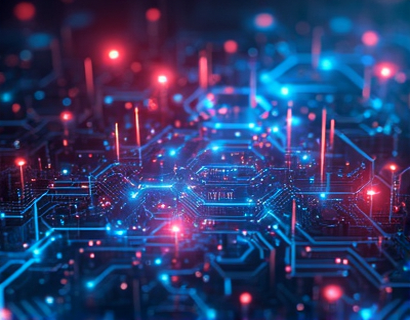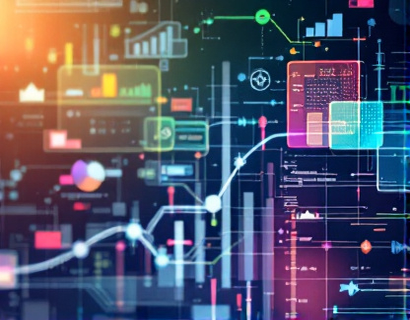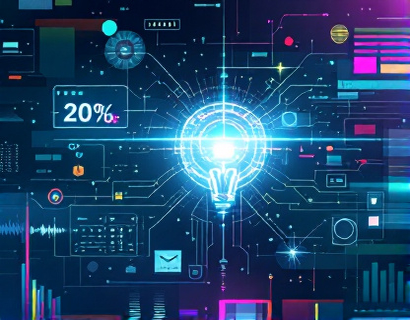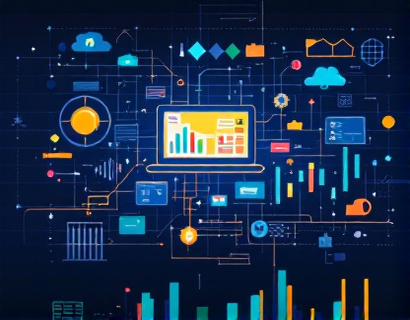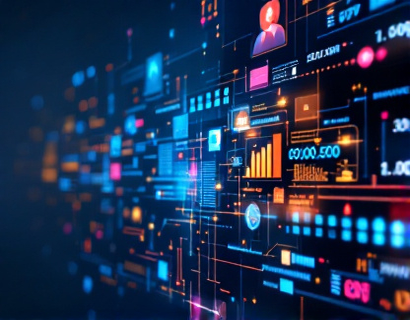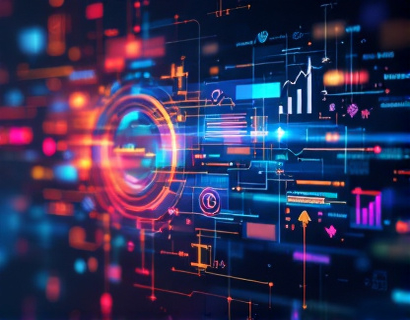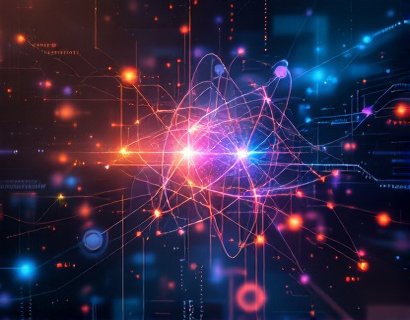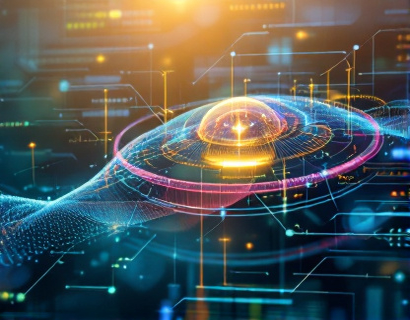Transforming Productivity with AI and Crypto: A New Era of Digital Solutions
The integration of artificial intelligence (AI) and cryptocurrency is revolutionizing the way tech innovators approach productivity and workflow management. This synergy is giving rise to advanced digital solutions that not only streamline tasks but also enhance the overall efficiency of tech-savvy professionals and early adopters. In this article, we delve into the cutting-edge technologies and applications that are reshaping the digital landscape, offering a comprehensive look at how AI and cryptocurrency are merging to create smarter, more efficient tools for the modern workforce.
Understanding the Synergy: AI and Cryptocurrency
The combination of AI and cryptocurrency leverages the strengths of both technologies to create innovative solutions. AI, with its ability to process vast amounts of data, learn from patterns, and make intelligent decisions, is the backbone of modern automation and optimization. Cryptocurrency, on the other hand, provides a decentralized, secure, and transparent medium for transactions and data exchange. When these two forces converge, they unlock new possibilities for enhancing productivity and security in digital workflows.
Smart Contracts: Automating Trust and Efficiency
One of the most transformative applications of this synergy is the use of smart contracts. Smart contracts are self-executing contracts with the terms of the agreement directly written into code. They run on blockchain technology, ensuring transparency and immutability. In the context of productivity, smart contracts can automate complex workflows by executing tasks based on predefined conditions. For instance, in project management, smart contracts can automatically release payments to contractors once milestones are met, eliminating the need for intermediaries and reducing administrative overhead.
Decentralized Workflow Management
Decentralized workflow management platforms are another area where AI and cryptocurrency are making significant impacts. These platforms use blockchain to create a distributed network where tasks and resources are managed without a central authority. AI algorithms optimize task allocation and resource utilization, ensuring that work is distributed efficiently and effectively. This not only speeds up project completion but also reduces costs and enhances collaboration among team members, regardless of their geographical location.
Enhanced Security and Data Integrity
Security is a paramount concern in any digital workflow. The integration of AI and cryptocurrency addresses this by providing robust security measures and ensuring data integrity. Blockchain's inherent security features, such as cryptographic hashing and consensus mechanisms, protect sensitive information from unauthorized access and tampering. AI can further enhance security by detecting and mitigating potential threats in real-time, using machine learning to identify patterns and anomalies that may indicate a security breach.
Predictive Analytics for Proactive Decision-Making
AI-driven predictive analytics is another powerful tool that tech innovators can leverage to enhance productivity. By analyzing historical data and current trends, AI can forecast future outcomes and provide actionable insights. In a business context, this means anticipating market changes, customer behavior, and operational bottlenecks. For example, AI can predict which tasks are likely to cause delays and suggest proactive measures to mitigate these risks, ensuring smoother project execution.
Tokenization of Assets and Rewards
Tokenization, powered by cryptocurrency, allows for the conversion of traditional assets into digital tokens. This process can be applied to various aspects of productivity, such as incentivizing employees or rewarding contributors in a project. By tokenizing rewards, organizations can create a more motivating and transparent incentive system. AI can optimize this process by analyzing performance data to determine the most effective reward structures, ensuring that incentives align with individual and team performance.
Decentralized Identity and Access Management
Decentralized identity solutions, supported by AI and cryptocurrency, offer a secure and user-controlled way to manage digital identities. This is particularly beneficial in collaborative environments where access to resources and data needs to be tightly controlled. AI algorithms can manage and verify identities, ensuring that only authorized users have access to sensitive information. This not only enhances security but also simplifies the onboarding and access management processes, reducing administrative burdens.
Automated Reporting and Compliance
Compliance and reporting are often time-consuming and error-prone tasks. AI-powered tools can automate these processes by generating accurate reports based on real-time data from blockchain-based workflows. Smart contracts ensure that all transactions and actions are recorded and verifiable, reducing the risk of errors and fraud. This automation not only saves time but also ensures that organizations remain compliant with regulatory requirements, providing peace of mind and reducing legal risks.
Case Studies: Real-World Applications
Several organizations have already begun to implement AI and cryptocurrency solutions to transform their productivity and workflow management. For instance, a software development company used a blockchain-based project management platform to streamline their development and deployment processes. By integrating AI for task prioritization and resource allocation, they saw a 30% reduction in project delivery time and a significant improvement in team collaboration. Another example is a financial services firm that adopted tokenized rewards and AI-driven risk assessment to enhance employee motivation and compliance monitoring, resulting in a more efficient and secure operation.
Challenges and Considerations
While the potential benefits are substantial, there are also challenges and considerations to keep in mind when adopting AI and cryptocurrency solutions. One major challenge is the technical complexity and the need for specialized knowledge to implement and maintain these systems. Organizations must invest in training and hiring experts who can navigate the intersection of AI and blockchain technology. Additionally, regulatory frameworks for cryptocurrency are still evolving, and compliance can be a complex issue. It is crucial to stay informed about legal requirements and best practices to ensure smooth implementation.
Future Trends: The Next Frontier
Looking ahead, the integration of AI and cryptocurrency is poised to open new frontiers in productivity and workflow management. The development of more advanced AI models, such as generative adversarial networks (GANs) and reinforcement learning, will further enhance the capabilities of these solutions. The rise of Web3 and decentralized applications (dApps) will also play a significant role, providing more powerful and user-friendly platforms for AI and cryptocurrency integration. As these technologies mature, we can expect even more innovative applications that continue to push the boundaries of what is possible in the digital workspace.
In conclusion, the synergy of AI and cryptocurrency is transforming productivity and workflow management for tech innovators and early adopters. By leveraging smart contracts, decentralized workflow management, enhanced security, predictive analytics, tokenization, decentralized identity, and automated reporting, organizations can achieve unprecedented levels of efficiency and security. While challenges exist, the potential benefits make this an exciting and promising area of technological advancement.



